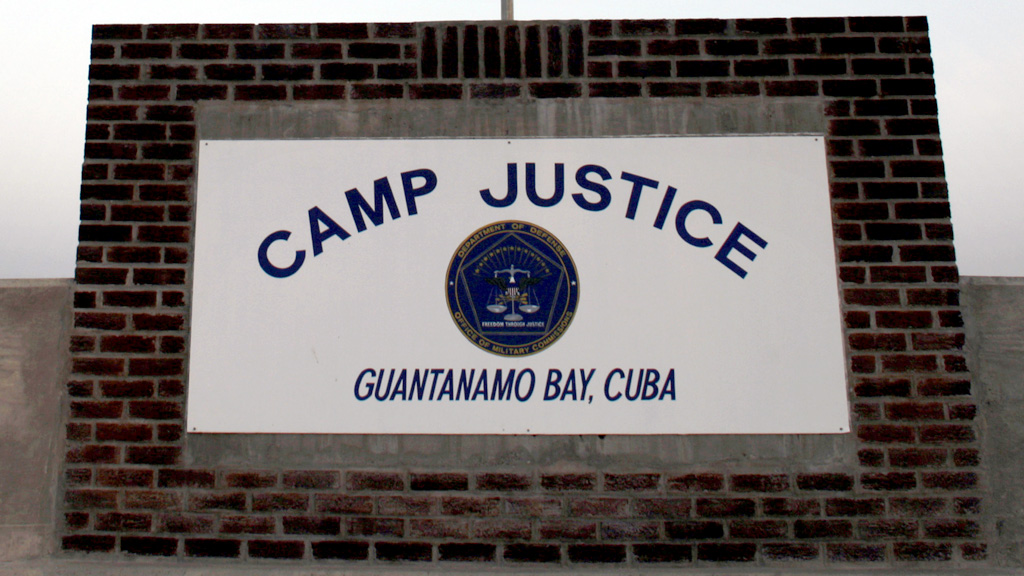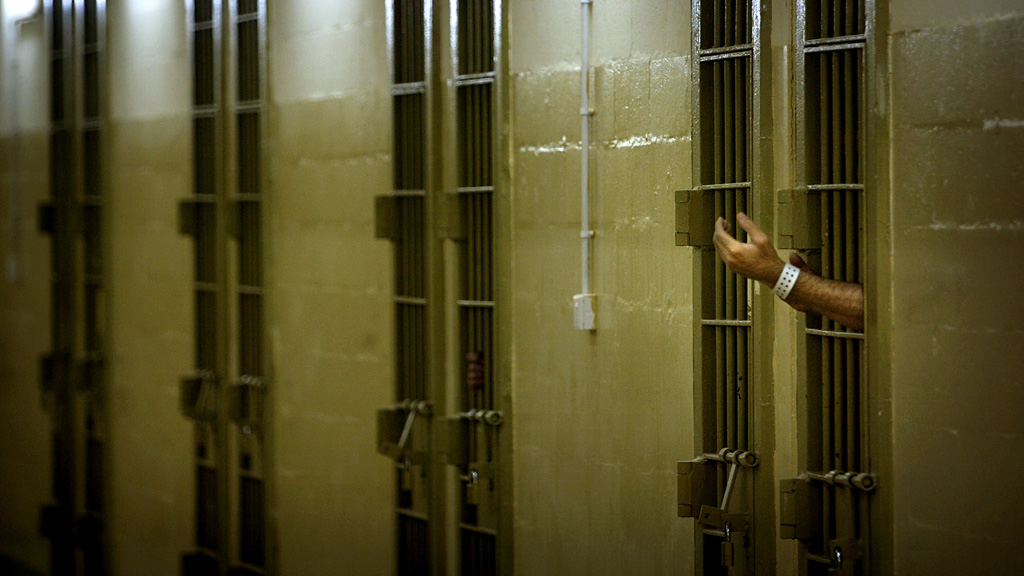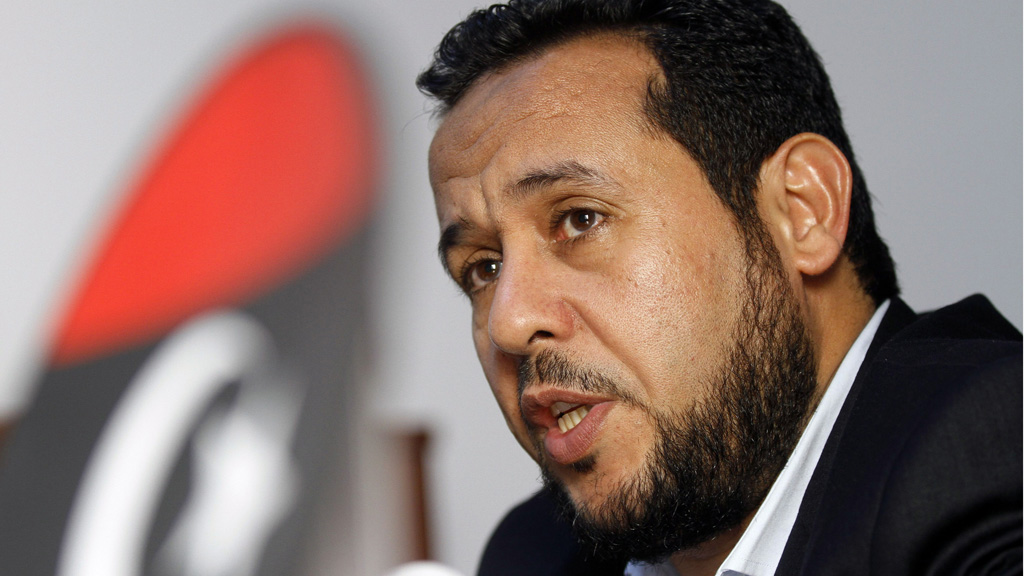‘Close Guantanamo Bay’ senior US figures tell Obama
Former senior members of the US military and political establishment accuse the country’s most senior officials of contributing to the spread of torture.

The independent report by the Constitution Project task force criticised a range of US actions since the 9/11 terror attack on the World Trade Centre as “cruel, inhuman or degrading”, and called for the closure of the Guantanamo Bay detention centre by the end of 2014.
The report follows a weekend of violence at Guantanamo, when some detainees attacked guards with makeshift weapons. Tensions have been increasing at the US military base in Cuba over the indefinite detainment of prisoners, many of whom are on hunger strike.
Guantanamo Bay … has proved a powerful tool for the nation’s enemies and a source of criticism from many friends. Constitution Project report
Amongst the practices criticised in the report were the indefinite detention of prisoners, torture at CIA “black sites” in countries like Thailand, Poland and Somalia, rendition, the use of secret prisons in foreign countries and the use of techniques such as waterboarding, sleep deprivation, and handcuffing in painful positions.
A number of findings were made by the report, including:
- That US forces used interrogation techniques on detainees that constituted torture.
- That the most senior officials in the US, through actions or failures to act, bear ultimate responsibility for the spread of illegal and improper interrogation techniques.
- That there is no persuasive evidence that the widespread use of harsh interrogation techniques produced significant information of value, and that much of the information recieved was unreliable.
- That the continued indefinite detention of prisoners at Guantanamo Bay needs to be addressed.
The report also made a number of recommendations, including changes to US statute to “strengthen criminal prohibitions against torture”, the declassification of evidence, the ending of force feeding, and the closure of Guantanamo Bay by the time US troops have pulled out of Afghanistan at the end of 2014.
The Constitution Project’s 11-strong taskforce (see box, below) said it had carried out the two-year investigation because of the US government’s unwillingness for an “official study into what had happened”.
Panel members interviewed former Clinton, Bush and Obama administration officials, military officers and former prisoners, as well as searching myriad public documents.
Guantanamo
The report says Guantanamo Bay has become “a symbol of the willingness of the United States to detain significant numbers of innocent people (along with the guilty) and subject them to serious and prolonged privation and mistreatment, even torture”.
“There can be no argument today about the fact that many people were held in custody for no reasonable security reason,” it read. “The notion that Guantanamo Bay was a place where the United States willingly held many innocent people has proved a powerful tool for the nation’s enemies and a source of criticism from many friends.”
Constitution Project task force
Asa Hutchinson: former United States attorney under Ronald Reagan, and under secretary for border and transportation security in the Department of Homeland Security under the Bush administration.
James R Jones: Former US ambassador to Mexico, a former Democratic member of the House of Representatives and former Appointments Secretary, equivalent to the White House Chief of Staff, under President Lyndon Johnson.
Talbot 'Sandy' D'Alamberte: A former president of the American Bar Association.
Richard A. Epstein: The inaugural Laurence A. Tisch Professor of Law at New York University School of Law, and served as the Peter and Kirsten Bedford Senior Fellow at the Hoover Institute.
David P. Gushee: Professor of Christian ethics and director of the Centre for Theology and Public Life at Mercer University.
Azizah Y. al-Hibri: Appointed in 2011 as President Barack Obama's commissioner on the US Commission on International Religious Freedom.
David Irvine: Salt lake City attorney in private practice, a former Republican state legislator and a retired Army brigadier general.
Claudia Kennedy: The first woman to achieve the rank of three-star general in the United State Army, and the former deputy chief of staff for army intelligence.
Thomas R Pickering: Former US under secretary for political affairs and a former ambassador to the United Nations. He has also served as US ambassador to Russia, India, Israel, El Salvador, Nigeria and Jordan and is a former lieutenant commander in the US navy.
William S Sessions: served three US presidents as director of the Federal Bureau of Investigation (FBI).
Gerald E Thomson: the Lambert and Sonneborn professor of medicine emeritus at Colombia University.
The report details the escalating use of harsher and harsher interrogation techniques, including against Mohammed al-Qatani, a man suspected of being the intended 20th hijacker in the 9/11 bombings.
In October 2002 al-Qatani was interrogated with military dogs present, placed in stress positions, deprived of sleep and kept in isolation. Following the creation of the Joint Task Force Guantanamo in November 2002, commanded by Major General Geoffrey Miller, the interrogation changed.
Logs for the period from the end of November to mid-January 2003 show that al-Qatani was interrogated for approximately 20 hours a day for seven weeks, that he was strip searched in the presence of female interrogators, forced to wear women’s underwear, forced to urinate on himself, led around on a leash, made to bark like a dog, and subjected to cold temperatures.
The leaders of this country should acknowledge that the authorisation and practice of torture and cruelty after September 11 was a grave error. Constitution Project report
The report said that “in many ways, the detention facility at Guantanamo Bay looks very different today than during the Bush administration”.
However, the report also said that “there remain troubling aspects of detention policy”, specifically the continued practice of force-feeding detainees on hunger strikes and the indefinite detention of detainees at the camp, even if they have been cleared for release.
Afghanistan and Iraq
The report says there have been several different points of failure by the US in Afghanistan, where it has acted as jailer for thousands of Afghan prisoners, whilst in Iraq the it was considered that the Geneva Conventions, which protect human rights, did not apply to Iraqi detainees.

In Afghanistan, the report says detainees were mistreated over the past ten years in both the US’s official detention programme, and unofficial programme which operated via a secret network of jails.
No government can be trusted with the power to inflict torment on captives. Constitution Project report
The deaths of two detainees within a week of each other at the Bagram Airbase in December 2002 is one specific example. The detainees had been interrogated by members of the 519th Military Intelligence Battalion, which then went to Iraq in the Summer of 2013 and conducted interrogations of prisoners at Abu Ghraib prison (pictured, above).
Months later graphic photos emerged of the abuse of prisoners at Abu Ghraib.
The report says: “Regardless of political party, the leaders of this country should acknowledge that the authorisation and practice of torture and cruelty after September 11 was a grave error, and take the steps necessary to ensure that it can’t be repeated.
“No government can be trusted with the power to inflict torment on captives.”
Rendition and ‘black sites’
Between 2001 and 2006 “the skies over Europe, Asia, Africa and the Middle East were crisscrossed by hundreds of flights whose exact purpose were a closely-held secret”, the report says. The purpose of these planes was “to shuttle human cargo across continents” by the CIA.
The “extraordinary rendition” programme was required to be kept secret because it allowed the CIA to use controversial interrogation techniques and because it involved using black sites or secret prisons in ally countries, the report says.
It is the view of the task force that the United States violated its international legal obligations in its practice of the enforced disappearances and arbitrary detention of terror suspects in secret prisons abroad. Constitution Project
Black sites such as “The Hangar” and “The Dark Prison” in Afghanistan were used for a range of practices – from constantly playing loud Western music like Eminem’s “Slim Shady” to waterboarding.
Syria, Jordan, Egypt and Morocco – countries suspected of using torture in interrogation – all recieved “human cargo” from the US under the rendition programme, the report says. Additionally a host of the US’s allies were involved, including Britain, Canada, Italy, Germany and Sweden and examples include the rendition of Abdel Hakim Belhadj (pictured, below).
The report said: “It is the view of the task force that the United States violated its international legal obligations in its practice of the enforced disappearances and arbitrary detention of terror suspects in secret prisons abroad.”
The report called for a strengthening of US law and the declassification of information in relation to rendition practices.
